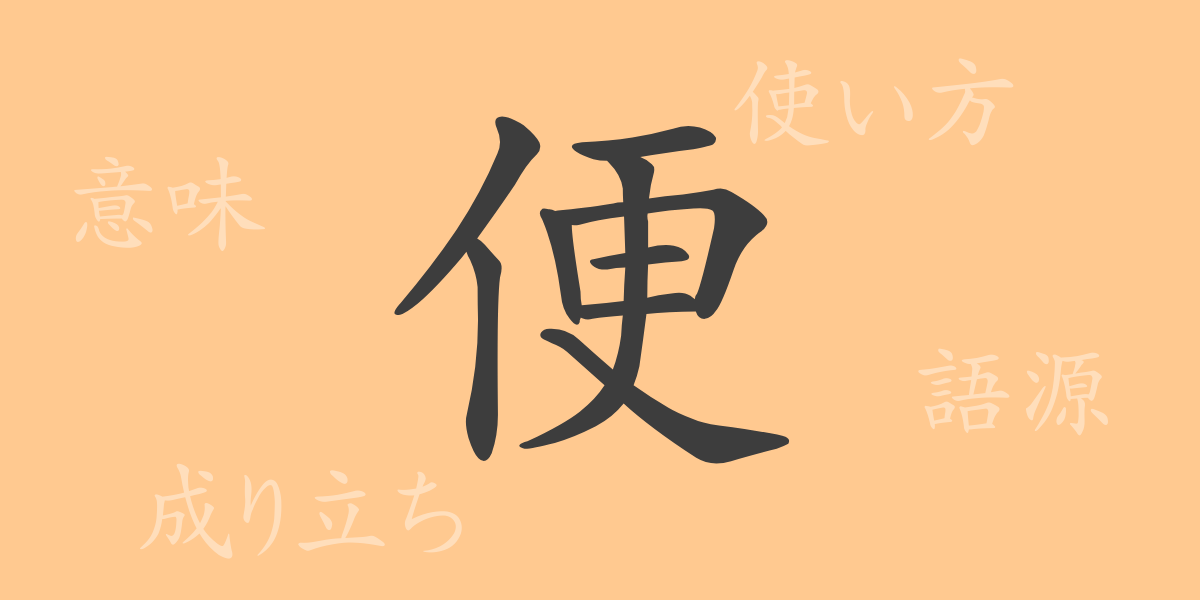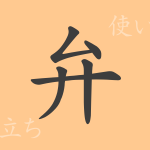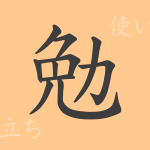The 常用漢字 (Jouyou Kanji), essential characters in written Japanese, each carry unique histories and meanings. The character 「便」(ben) is no exception. Frequently used in everyday life, 「便」(ben) appears in various contexts, from letters and package labels to services that enhance convenience in daily living. This article delves into the origins, meanings, usages, readings, and even idioms and expressions involving the kanji 「便」(ben), unraveling its full scope.
Origins of 便 (ben)
The kanji 「便」(ben) originated in ancient China. Tracing back its etymology, it initially appeared as 「偏」(hen), representing a person leaning to one side. This shape evolved to depict a person carrying something, eventually transforming into 「便」(ben). This evolution suggests that 「便」(ben) is closely related to human life.
Meanings and Usages of 便 (ben)
The kanji 「便」(ben) primarily means “convenience,” “sending letters or packages,” and “excrement.” It is commonly used in words like 「便利」(benri) (convenience), 「郵便」(yuubin) (mail), and 「便秘」(benpi) (constipation). Additionally, it can function as an adjective, noun, or verb, offering diverse nuances depending on the context.
Readings, Stroke Count, and Radical of 便 (ben)
The kanji 「便」(ben) has multiple readings in Japanese.
- Readings: The 音読み (on’yomi) is 「ベン」(ben), and the 訓読み (kun’yomi) is 「たよ.り」(tayori).
- Stroke Count: 「便」(ben) has a total of 9 strokes.
- Radical: The radical is 「亻(にんべん)」(ninben).
Idioms, Expressions, and Proverbs Involving 便 (ben)
There are numerous idioms, expressions, and proverbs that include 「便」(ben). Phrases like 「便宜を図る」(benki o hakaru) (to make things convenient), 「一石二鳥の便」(isseki nichou no ben) (killing two birds with one stone), and 「渡りに船の便」(watari ni fune no ben) (a godsend opportunity) each carry meanings such as “to arrange for convenience,” “to gain two benefits from one action,” and “to be unexpectedly blessed with a favorable opportunity,” respectively. Using these idioms and expressions enriches communication.
Summary of 便 (ben)
The kanji 「便」(ben) has evolved in form and meaning over time, playing a crucial role in modern Japanese. From enhancing daily convenience to facilitating smooth communication, 「便」(ben) is deeply rooted in our everyday lives. We hope this article has provided a deeper understanding and appreciation of the multifaceted charm of 「便」(ben).

























